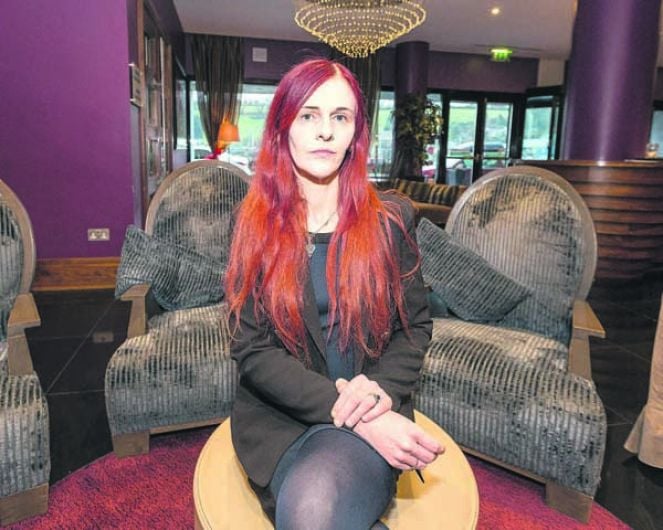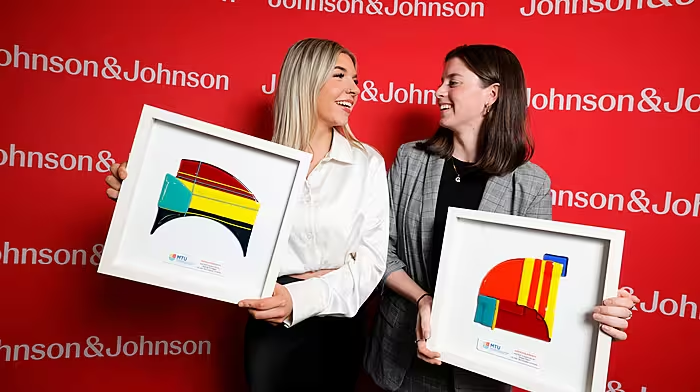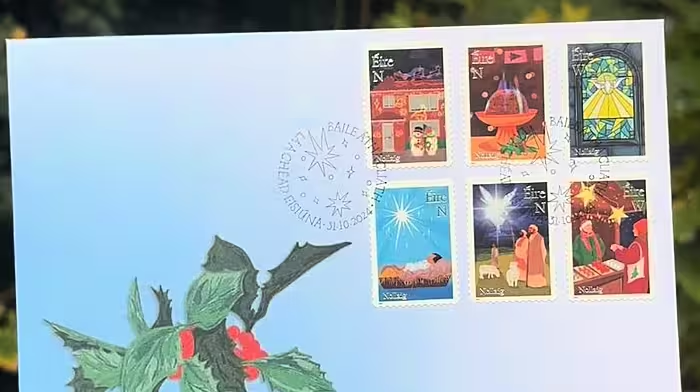Autism rights campaigner Fiona O'Leary recently celebrated a significant court victory. She talked to Peter Allen about her ongoing battle for justice for the vulnerable in our society
Autism rights campaigner Fiona O’Leary recently celebrated a significant court victory. She talked to Peter Allen about her ongoing battle for justice for the vulnerable in our society
DRIMOLEAGUE-based Fiona O’Leary has been celebrating another victory in her battle for justice for those with autism.
At Naas District Court, an appeal taken against a conviction by a Kildare man who offered her a ‘cure’ for her own child’s autism, was struck out last month. Fiona, a former local election candidate, had earlier given evidence in the case, having been offered the ‘cure’ – industrial bleach – by the defendant.
The court had imposed a fine of €4,000 on the man, and Fiona says it is a victory for the campaign, as convictions are very rare – even in other countries.
Fiona has long campaigned against such ‘cures’ and has even travelled to speak to members of the European Parliament in Brussels, raising awareness about the issue of these so-called ‘miracle treatments’.
The parents who are sold these supposed cures are usually desperate for assistance of some kind, she points out.
Vulnerable parents are told that unorthodox cures, such as chlorine dioxide, are actually being ‘unfairly’ rubbished by the medical establishment and the media.
And, she says, internet ‘noise’ and fake news are normalising the scepticism surrounding medicine and science. She says vaccination rates for common diseases are at unacceptably low levels, even in Ireland, and people are being put at risk as a result.
She, herself, is wary of alternative medicine because of all that she has learned while campaigning against un-scientific cures. She fears that the attraction of ‘non-mainstream’ treatments are perhaps being used to exploit people.
Fiona warns of the increase in ‘quacks’ who come across as professional in manner and presentation. But she encourages everyone to be cautious of those presenting themselves as holding ‘miracle’ cures.
‘Young people are inquisitive and perhaps easier to brainwash. It is harder for people born into cults like Scientology to break out, than it is for people who joined in later life. But I believe everyone can be de-programmed,’ she says.
Fiona says the appeal of ‘cult’ faith could be the result of the collapse of traditional religious faith in Ireland – creating a search for replacement communities and meaning.
Fiona has become very active in protests against large foreign cults, like scientology, establishing themselves in Ireland. ‘People like Tom Cruise are drawn to scientology because it gives them a platform from which to believe that they are better than everyone else – a clear, but unquestioning, state of mind. People farther down the pecking order are often blackmailed spiritually and socially to stay within these cults.’
But she is also fearful that complacency from the government could allow an expansion of such groups. She fears that there will be more instances of miracle cures for serious illness offered in this country before the battle is won. Education is key to creating a more trusting society, she says.
‘Ministers such as Fine Gael’s Kate O’Connell are working hard to introduce legislation, and criminalising the sale of false cures in Ireland. The risk of harm to our children must be ended.’
The Drimoleague mum says she is determined to continue with her activism, despite threats against her from various cult members. She knows that her friends are concerned that she is putting herself under needless stress. ‘It is not about myself, I don’t want to do this. It should be the responsibility of the government to protect the vulnerable with legislation,’ she says.
As someone who is, herself, on the autism spectrum and also a mother to children with autism, she feels she has no choice but to continue in her mission to eliminate any risks to them.
‘I do this in part for them, and as part of a strong sense of empathy and justice which I have always had for other people, especially the vulnerable.’
As she vows to continue fighting, what keeps her spirits up? ‘Coffee helps,’ she smiles.







